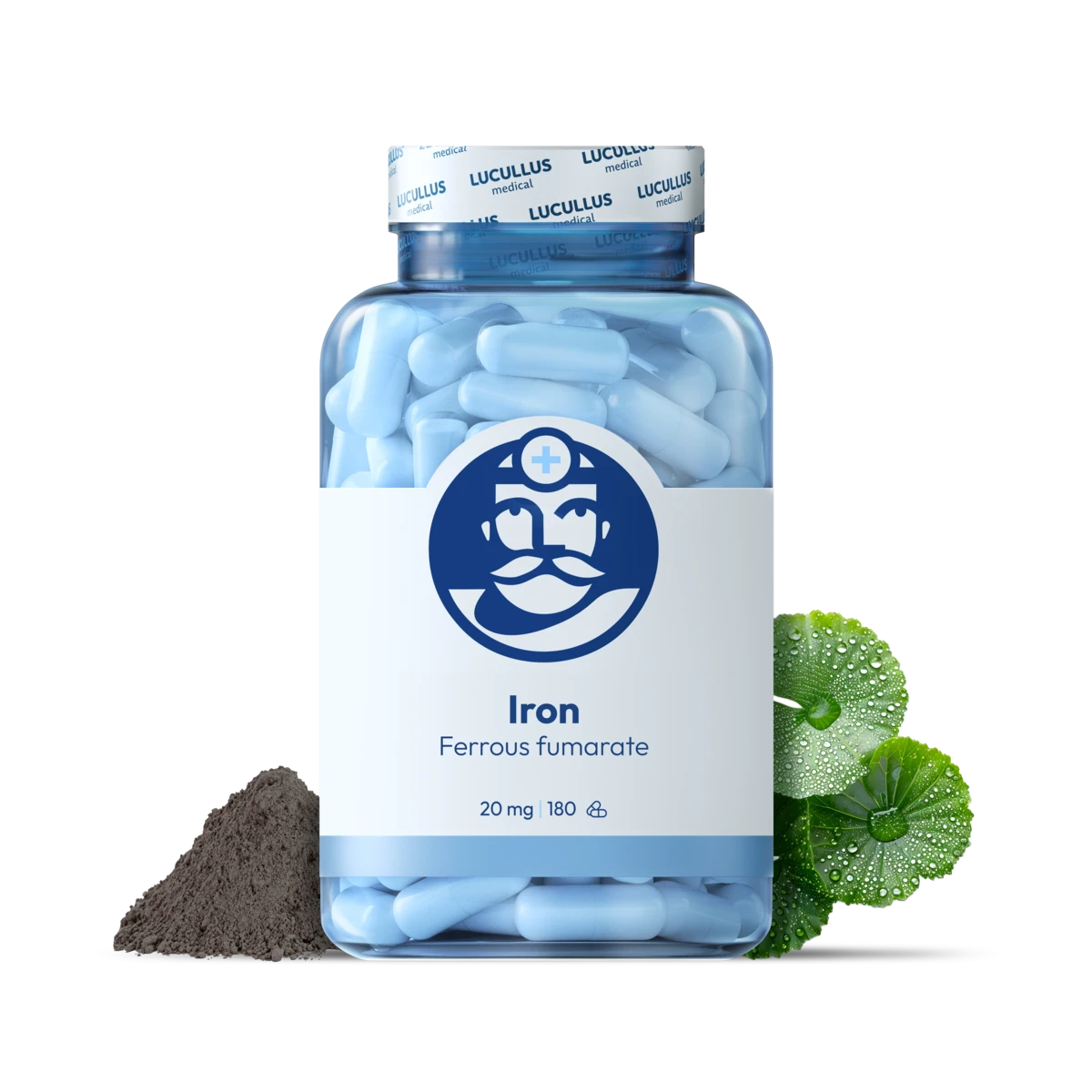
Železo - tajomstvo vášho zdravia a energie
Predstavte si, že vaše telo je továreň pracujúca na najvyššie obrátky, (aby zabezpečila energiu, rast, opravu buniek) a železo je palivo, ktoré udržiava jej chod. Ak sa vyčerpávajú zásoby železa ihneď, slabosť, búšenie srdca či bledšiu kožu. Príznaky nedostatku železa sú lámavé nechty, suché vlasy, dýchavičnosť, problémy so spánkom, znížená koncentrácia, studené končatiny, zvýšená frekvencia infekcie a anémia (nedostatok červených krviniek spôsobený príliš malým množstvom železa v tele) ktorá sa prejavuje extrémnou únavou. Pri anémií telo nie je dostatočne zásobovaný kyslík a rýchlo sa vyčerpáva. Signál nedostatku železa môže byť aj tvorba modrín, pretože tento minerál je dôležitý pri tvorbe hemoínu, ktorý podporuje správnu funkciu krvných doštičiek.

Ashwagandha - Withania Somnifera
“Ashwa” (horse) “gandha” (root smell), the name itself hints at the plant's ability to grant strength and vitality (the strength of the animal hidden in the root). Known as “Indian ginseng” (similar shape), and “winter cherry root” (fruits resemble cherries). From the small shrub with yellow flowers, the root is mainly used in traditional medicine. Due to its calming effects, it's significantly known as the Sleep or Dream Berry. The Latin name somnifera also reveals its property ; invoking sleep.

Železo - tajomstvo vášho zdravia a energie
Predstavte si, že vaše telo je továreň pracujúca na najvyššie obrátky, (aby zabezpečila energiu, rast, opravu buniek) a železo je palivo, ktoré udržiava jej chod. Ak sa vyčerpávajú zásoby železa ihneď, slabosť, búšenie srdca či bledšiu kožu. Príznaky nedostatku železa sú lámavé nechty, suché vlasy, dýchavičnosť, problémy so spánkom, znížená koncentrácia, studené končatiny, zvýšená frekvencia infekcie a anémia (nedostatok červených krviniek spôsobený príliš malým množstvom železa v tele) ktorá sa prejavuje extrémnou únavou. Pri anémií telo nie je dostatočne zásobovaný kyslík a rýchlo sa vyčerpáva. Signál nedostatku železa môže byť aj tvorba modrín, pretože tento minerál je dôležitý pri tvorbe hemoínu, ktorý podporuje správnu funkciu krvných doštičiek.

Multitalent Multivitamín
Je potrebné mať multivitamínov iba spôsob ako drahú moč? Inými slovami: ak namiesto jednotlivých suplementov a zodpovedného dávkovania dáme všetko do jednej krabičky - bude to mať zmysel? Áno aj nie - pozrime sa na to.

B3 - example that food is medicine
Niacin was long considered a mere part of the diet until it was discovered that its deficiency causes skin, digestive, and mental problems known as pellagra. Doctor Goldberger proved that the cause of this disease is not an infection but a one-sided diet without vitamin B3. He conducted an experiment on himself and his colleagues, who consumed exclusively poor diets and began to show symptoms of pellagra. However, when they added nutrients rich in niacin to their diet, the symptoms disappeared. In 1937, niacin was isolated from the liver, confirming its importance and nutritional value.

MSM (Organosulfur) .... multifunkčný doplnok
Vedeli ste, že síra je pre naše telo rovnako nevyhnutná, ako vitamíny či minerály? Jedným z jej najvýznamnejších zdrojov je látka nazývaná metylsulfonylmetán, skrátene MSM. Napriek tomu, že názov znie, ako z učebnice chémie, ide o prirodzenú látku tak zásadným významom pre správne fungovanie organizmu. MSM sa prirodzene vyskytuje v krvi, tkanivách a orgánoch, kde podporuje látky, ako sú aminokyseliny - glutatión, cysteín a metionín. Táto organická zlúčenina síry, známa aj ako organosulfur je mimoriadne účinná v boji proti oxidačnému stresu, zápalom a pri regenerácii tela. Jej zdrojom môžu byť prírodné potraviny. Organosírne zlúčeniny, ako napríklad aličín v cesnaku, majú široké zdravotné využitie, a MSM je jedinečný v tom, že ponúka komplexnú podporu od zdravia kĺbov až po posilnenie imunity .






























